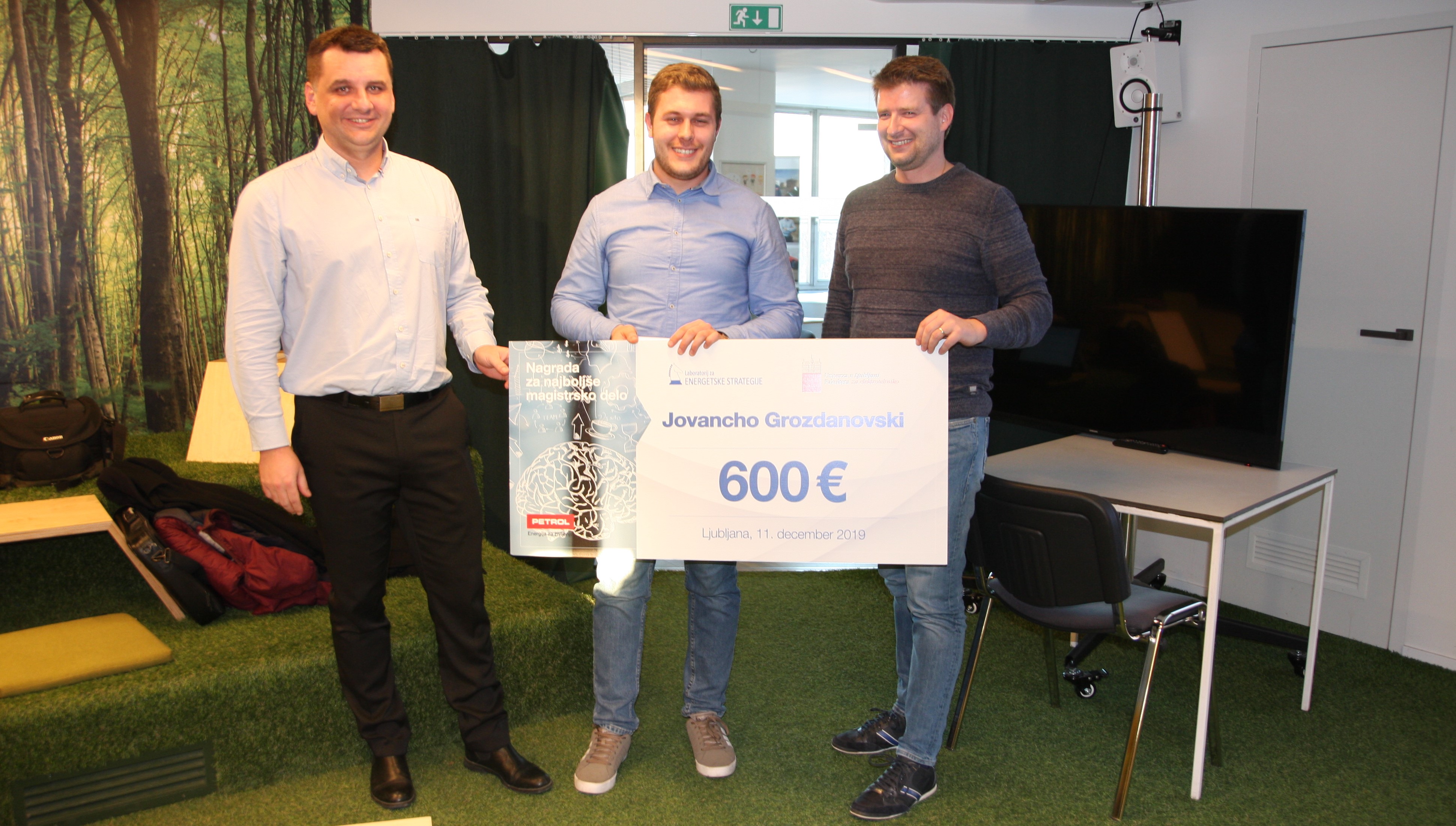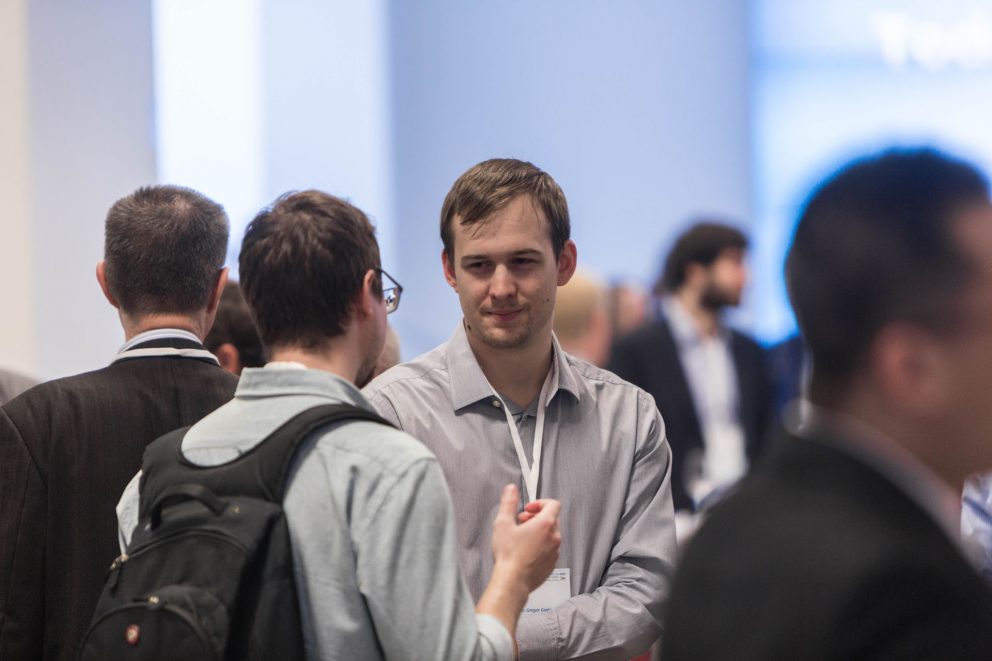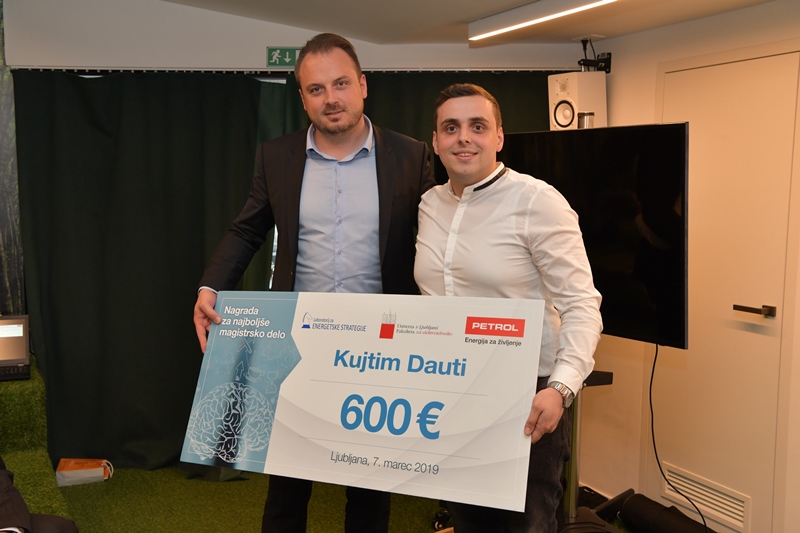Master thesis



Cooperation between Petrol and the Laboratory extends also to the field of master’s thesis mentorship. We are aware of the importance of connecting the industry, academic institutions
and future professionals. For several years in a row, we have been preparing a selection of contemporary topics for master’s theses and awarding the best of them.
We always have interesting challenges at our disposal. All who wish to write their final assignments in cooperation with us are invited to write to lest@fe.uni-lj.si or visit us on the 3rd floor of the Faculty of Electrical Engineering.
Award winners of previous years
Currently announced topics for master's theses for 2021 (in cooperation with Petrol d.d.)
The candidate would develop an optimization model for the operation of the local network (a real example of the “Local Energy Community of Luče”), which includes a system battery, house batteries, PV, CHP unit and a little wind power plant. In doing so, it would take into account optimal performance according to different applications (locally produced energy consumption, self-sufficiency, security of energy supply, energy use for system services, cutting power consumption peaks in the area in combination with system battery, voltage stability).
The new regulations on self-sufficiency in Slovenia enable the concept of self-sufficiency for communities. The candidate would focus on reviewing the concepts of self-sufficiency and analyzing the real case of the “Local Energy Community of Luče” for cases of different billing periods. Besides, the candidate would focus on the analysis of the impact of the size of the RES community and the analysis (financial optimization) of which elements to add to achieve the goals of self-sufficiency.
Upgrading the energy optimization of an individual customer or system based on the technological process by including market prices and trading on stock exchanges in the optimization process. The candidate would focus on the development of individual modules to optimize the use of unit flexibility (CHP, battery, wind power plant, PV, EMS, electrolyser,…) within the trading support portfolio.
The point of sale has many different types of consumption, namely for heating, cooling, lighting, etc. Operating individual devices can significantly improve energy efficiency, peak consumption management, and can also provide some flexibility by adjusting consumption. The task aims to create a model for managing larger consumers with the previously listed goals.
System operators have the task of balancing the system, so they charge electricity suppliers for these services. There are different models of passing these costs on to suppliers. The task would aim to analyse several markets with different methods of accounting and to determine whether there is a possibility of arbitration between individual markets.
Hydrogen is proving to be one of the possible future energy sources suitable for storing and producing electricity. The task would aim to review hydrogen technology by implementing it in a system that provides flexible consumption. In addition to the technical characteristics, it is also necessary to provide an economic assessment of the eligibility of the investment.
Energy storage will be one of the main industries in the energy sector in the future. The reason is increasingly volatile sources and customers. The thesis would review the possible ways of storing/converting electricity into other energies and the possibility of reverse conversion into electricity. The paper aims to review the options with a focus on the technologies that are most economically viable.
Electricity trading is becoming increasingly automated, and in intraday trading, automated trading has almost replaced manual trading. The candidate would conduct a review of models that allow the implementation of automated trading and make an automated trading algorithm and demonstrate it.
A single market for ancillary services (MARI platform and PICASSO platform) is being introduced in the EU. The candidate would review and describe the new way of cooperating at the level of system services. It would further analyse the situation in Slovenia and the surrounding countries to assess the increase in business opportunities for cooperation in ensuring frequency regulation and the mutual influence of the single market.


